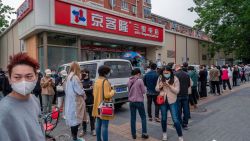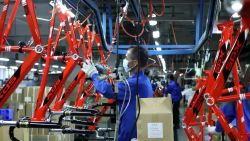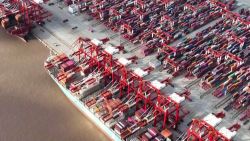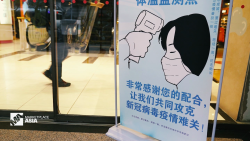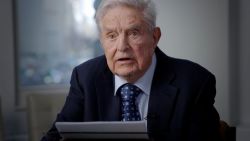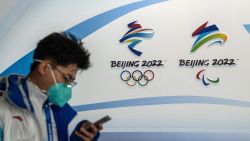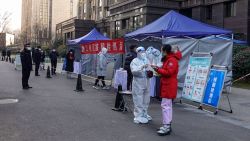China’s economy will produce “miracles that will impress the world” in the coming years, President Xi Jinping promised in a high-profile speech Tuesday marking four decades since the country embarked on its earthshaking economic transformation.
But Xi’s speech was short on specifics, with no concrete policies or plans to tackle China’s increasingly complex economic problems, which include weakening growth, rising debt and an ongoing trade war with the United States.
In a speech lasting more than 80 minutes in Beijing’s Great Hall of the People, Xi praised his country’s “hard work, wisdom and courage” and listed its achievements since former leader Deng Xiaoping launched the era of “Reform and Opening” in 1978.
Xi pledged to continue liberalizing the economy and boosting private companies, while also strengthening state-owned enterprises. There will be “no turning back” to the policies of the past, he said.

But Chinese stock markets fell slightly over the course of Xi’s address as it became apparent he wasn’t going to reveal how he planned to deal with the country’s slowing economy.
Xi’s speech will have “disappointed” both international and local investors, said Tom Rafferty, a China expert at the Economist Intelligence Unit.
“There’s a lot of anxiety about near-term economic growth and trade talks with the United States … it was a bit of a missed opportunity for (Xi) to at least offer something in that direction,” he said.
One thing Xi made crystal clear thatBeijing alone will decide China’s future direction. “No one is in a position to dictate to the Chinese people what should or should not be done,” he told the audience.
‘A new era’
“Reform and Opening” is the phrase used to describe the dramatic policy shift that led to China’s slow opening to the world under Deng, after decades of famine and chaos under Chairman Mao Zedong.
For the first time since the People’s Republic of China was founded in 1949, Deng’s reforms allowed private businesses to open and farmers to sell excess produce on the market.
When Deng addressed the Communist Party leadership on December 18, 1978, in a speech widely considered to be the beginning of the reform era, China’s gross domestic product was just under $150 billion.
Forty years later, it has surged to more than $12 trillion, trailing only the United States.
“‘Reform and Opening’ is a great revolution in the history of the Chinese people and the Chinese nation … Four decades on, China has entered a new era,” Xi said on Tuesday.
On Friday, Xi hosted a large gala in Beijing, with more than 3,000 people, featuring songs and poetry recitals in honor of the anniversary.
Before Xi spoke on Tuesday, the Communist Party honored 100 people for their special contribution to “Reform and Opening” including prominent technology entrepreneurs like Alibaba’s Jack Ma and Tencent’s Ma Huateng.
“We have met (difficulties) head on, and gone from strength to strength – just as a mighty river casts through mountains and surges ahead by gathering the force of hundreds of streams,” Xi said.
But Rafferty said there were indications Xi was preparing his domestic audience for tougher times ahead in the coming year. “There was a bit of messaging there suggesting things may get a little bit difficult in the near term,” he said.
China won’t stand for ‘bullying’
One such difficulty is the ongoing trade war with the United States, sparked by US President Donald Trump over concerns at the growing trade imbalance between the two countries and what he says are unfair practices China uses to get hold of American technology.
Trump has demanded further reforms to the Chinese economy, including greater access for US companies and a clampdown on intellectual property theft.
Xi’s speech comes during a 90-day truce between Washington and Beijing while the two sides try to reach a compromise.
The Chinese President made no reference to Trump or the ongoing trade negotiations in his speech but said “international fairness and justice” must be upheld going forward.
“(We must) oppose the practices of imposing one’s will upon others, interfering in others’ internal affairs or the strong bullying the weak,” he said.
Xi may not have telegraphed any specific changes going forward but he made it clear that China would continue to play a large role in the global economy going forward.
“China cannot develop itself in isolation of the world but the world also needs China for global prosperity,” Xi said.
CNN’s Yong Xiong and Eric Cheung contributed to this article.



